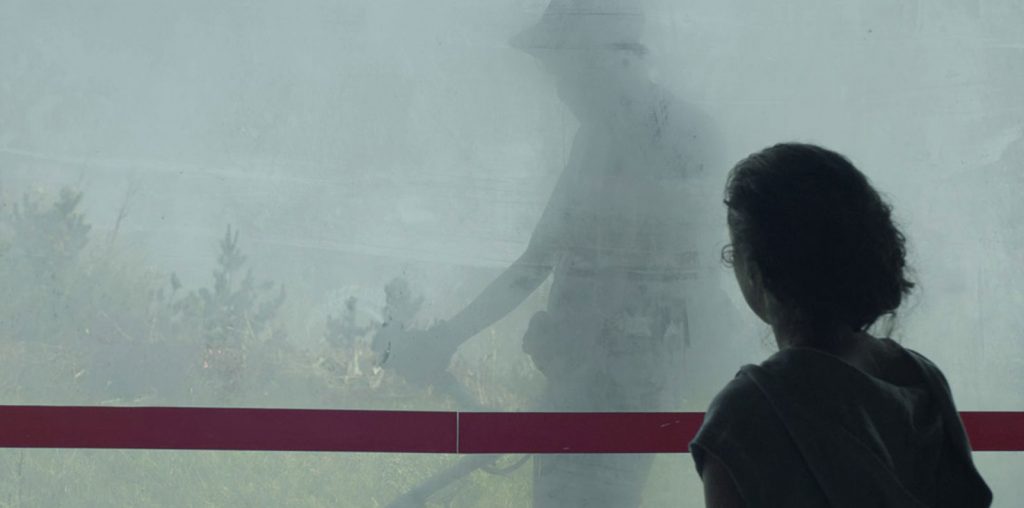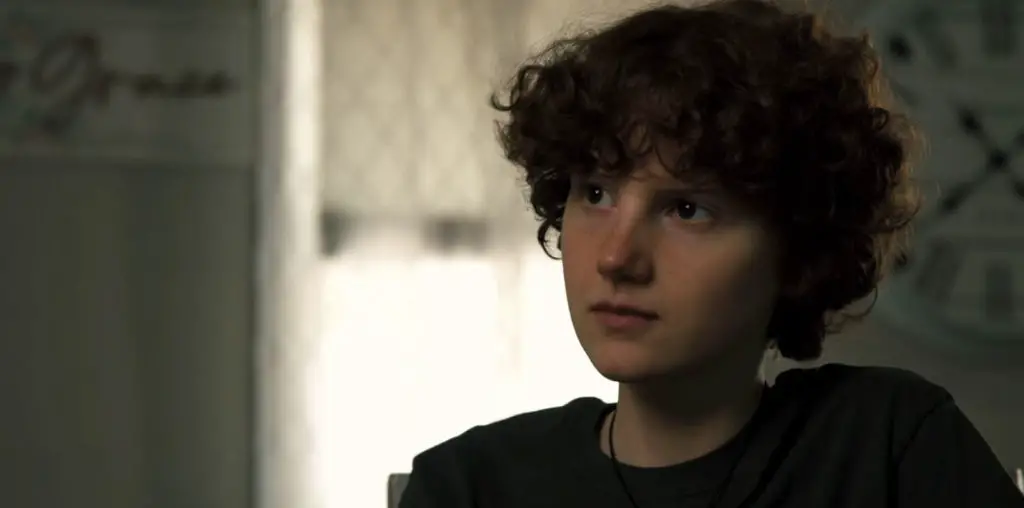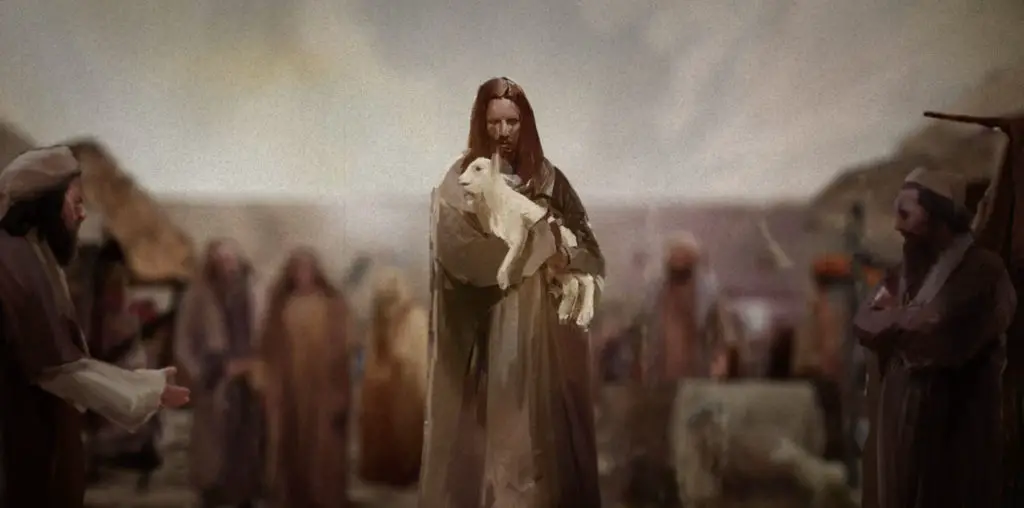
Every now and then, an older obscure film that received little notice in its day is quietly re-released to a future generation that embraces it as a work of brilliance. It’s happened again, and the film in question is the 1954 British drama “Another Sky.” Not appreciated during its original release and unavailable for many years, it has returned in a beautiful new digitally restored DVD presentation.
“Another Sky” was the only movie directed by Gavin Lambert, the influential British film critic. It wasn’t his only connection to the cinema, as he relocated to Hollywood after the film’s completion to enjoy a highly successful career as a screenwriter and biographer. Yet in viewing “Another Sky,” one has to rue the fact Lambert never directed another movie – if this production is any indication, a great filmmaking talent was lost to us.
“Another Sky” takes place in Morocco and it follows the unlikely journey of Rose, a prim and somewhat repressed British governess who takes an assignment as the companion for Selena, a wealthy Englishwoman living in Marrakech. Selena is everything Rose is not: free-spirited, sexually voracious and eager to enjoy the best of her surroundings without becoming absorbed into the Moroccan culture. Selena doesn’t mind shopping in the local bazaars and souks, and she clearly enjoys the company of a for-pay Moroccan lover who is young enough to be her son – but beyond that, she is very much a part of the European and American expatriate community and her interest in Morocco is very limited.
Rose, however, finds herself attracted to the otherness of Morocco – its street sounds, the friendliness of the people, and the complexities of its culture. She also finds herself falling in love with Tayeb, a musician who is part of a group that performs at parties and street fairs. Their relationship is a peculiar one – it doesn’t progress very far beyond hand-holding and a relatively chaste kiss, and Rose (taking a cue from Selena and her boy toy) provides financial remuneration to Tayeb after each date.
But when Tayeb abruptly vanishes, Rose finds herself heartsick. Throwing her prim British reserve to the winds, she sets out in search of Tayeb. Venturing by bus, donkey and foot, she crosses Morocco’s Atlas Mountains to reach Tayeb’s village and to reunite with her quasi-lover.
The fascinating aspect of “Another Sky” is the brilliantly enigmatic nature of the central story. There is relatively little in the way of backstory, with only bare hints of the character’s minds and souls. Rose’s heart might be larger than she is willing to display: she dotes over snapshots of the children of her former employers and happily hands money to the street urchins who make her happy acquaintance in the bazaar. Yet the British society clearly keeps her in a class slot: although she accompanies Selena to a swanky Euro-American party, she nonetheless immediately finds herself standing on the outer edges of the gathering without any pretense of being equal to the other (and richer) celebrants.
When Tayeb leaves, her reaction may seem extreme at first – but as he pushes further and further into the Moroccan interior in search of him, the viewer literally aches for this poor woman’s emotional pain in trying to maintain what was clearly the only love she ever felt (even if it came with a pricetag). The surprising conclusion (which will not be revealed her) provides Rose with a highly unlikely liberation from her emotional and professional state into a realm she never knew existed.
As played by Victoria Grayson (who, according to the IMDB, only appeared in this and one other film), Rose is an astonishing creation. But she is brilliantly matched by Catherine Lacey’s Selena. A veteran character actress, Lacey brings Selena to vibrantly hedonistic life. Equal parts petulant, self-absorbed and emotionally generous, she is a richly complex woman (though the circumstances that brought her to great wealth and a Moroccan home are never explained, which is more than fine for these circumstances). Her scenes with the local gigolo are never crass or grotesque. Indeed, the exploitation is coming from her, as she gluttonously eyeballs him at a swimming pool or clings to him during an afternoon of dancing and drinking. Yet when she crumples in pain from an asthma attack, Rose defensively shoos away her boytoy so Selena can recover her strength and energy – and he meekly obeys.
“Another Sky” was shot on a very low budget, and occasionally the film’s financial limitations are obvious (particularly the sound recording, most of which was obviously post-dubbed). Yet the film’s intelligent use of the Moroccan locations (an early triumph for cinematographer Walter Lassally, who later shot “Tom Jones” and won the Oscar for “Zorba the Greek”) and the bold use of local music throughout the film provides a sensual and emotional odyssey across the Moroccan experience.
Lambert also gambled on using local nonprofessionals to fill the Moroccan character parts and everyone performs splendidly (particularly a handsome musician named Tayeb who plays the musician Tayeb).
“Another Sky” was not appreciated when it was made. No British distributor would acquire it and it didn’t play in the U.S. until a spotty art house release in 1960. Outside of Henri Langlois’ exuberant advocacy of the film, it made little impression in France (which, at the time, was still the colonial power occupying Morocco). Clearly the film was a victim of its era, when the idea of a white woman “going native” in an alien culture and throwing herself at a local was considered freaky and absurd.
In today’s world, however, “Another Sky” is not a strange movie at all. It is a film of great intelligence and endless emotional beauty. Discovering this film is a rich experience – this film deserves to be called a classic of British cinema.



Whatever happened to the British Actress Victoria Grayson who played Rose Graham in the film? Very little information is available on the internet.